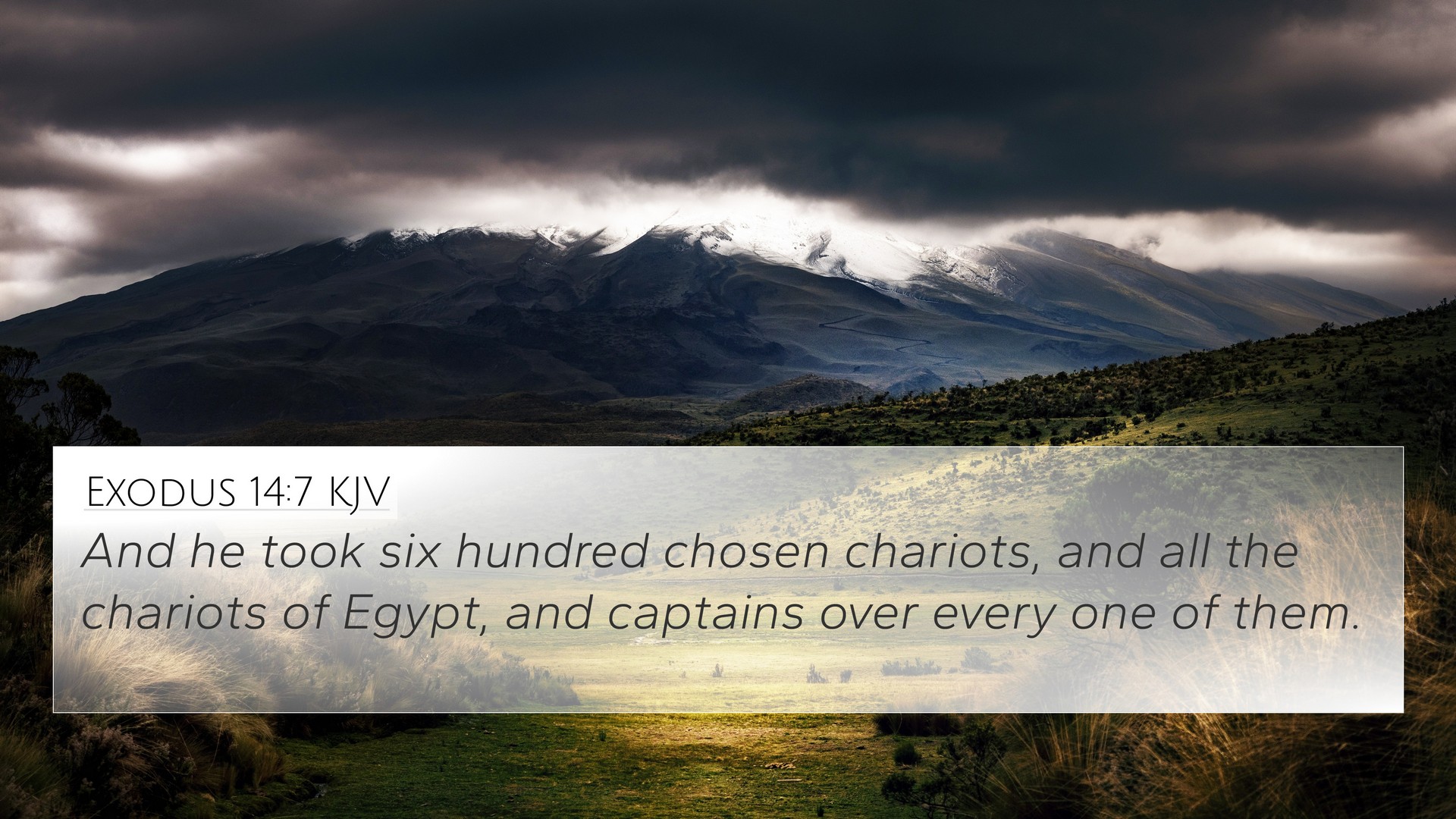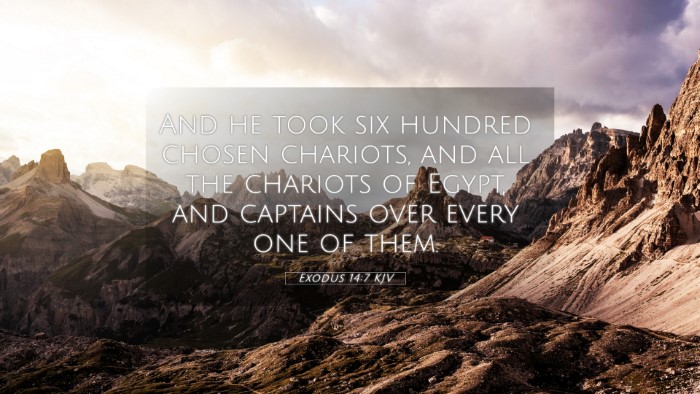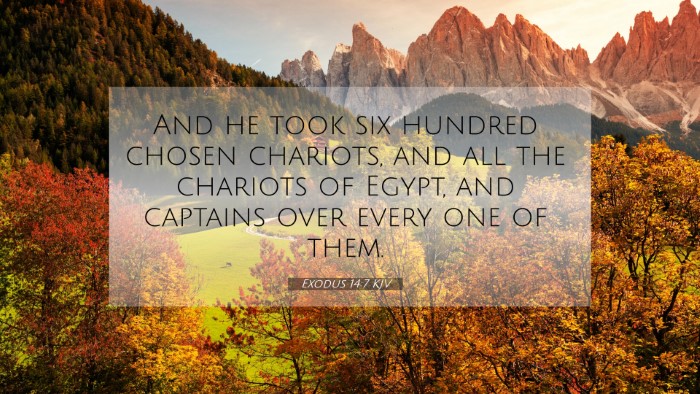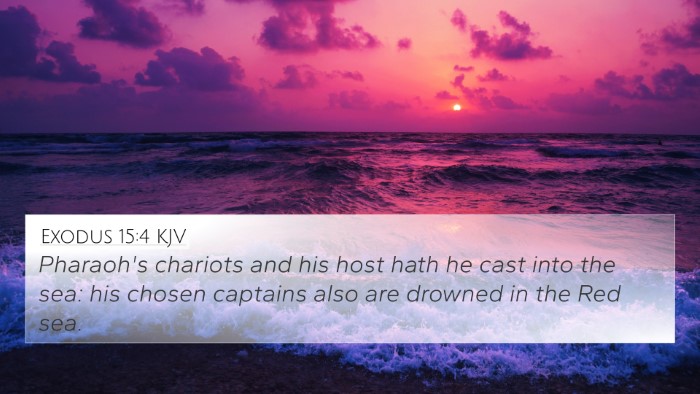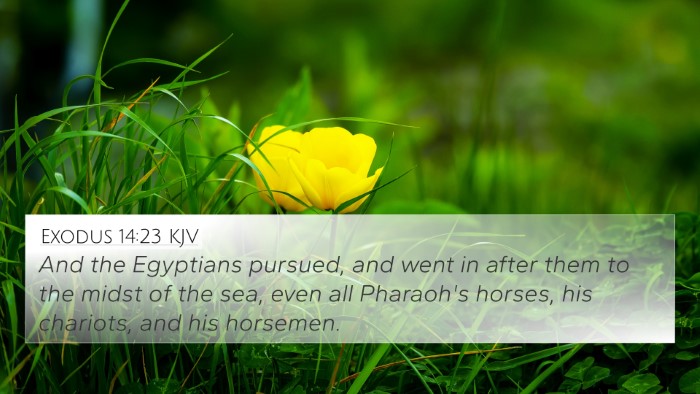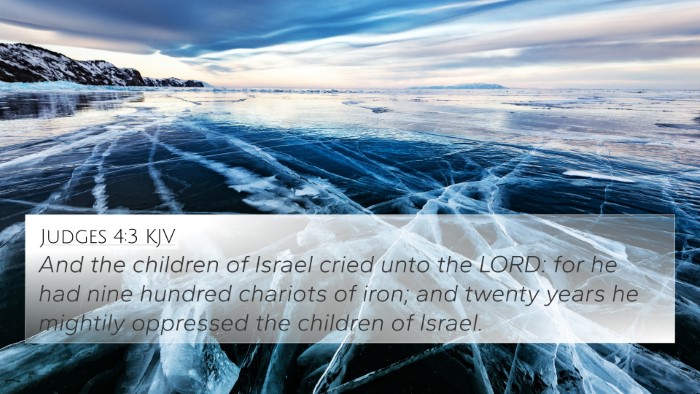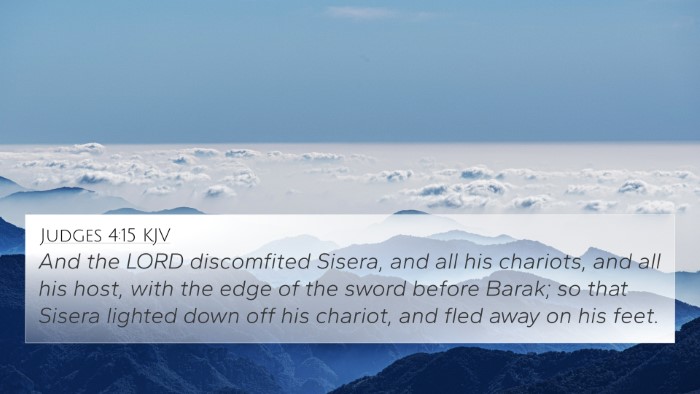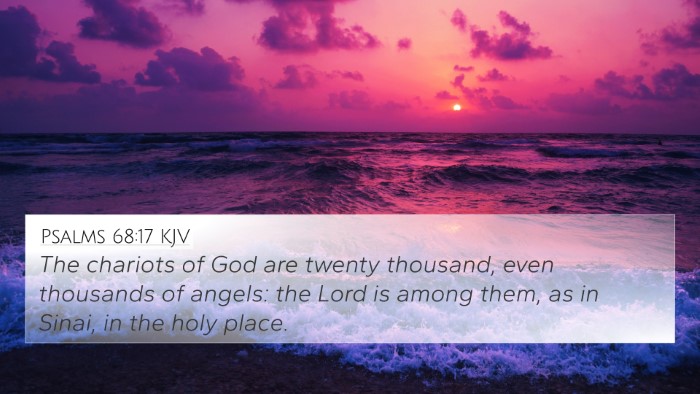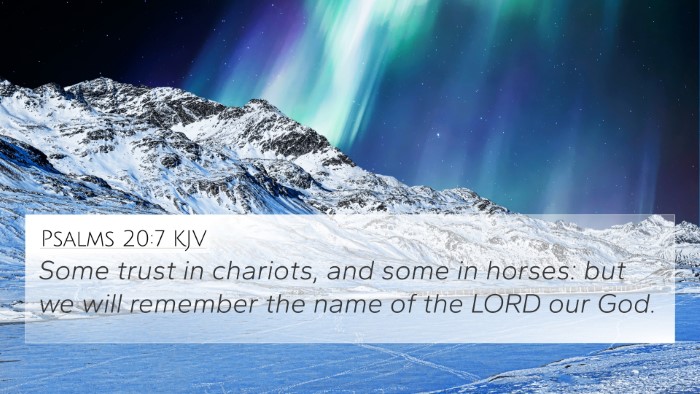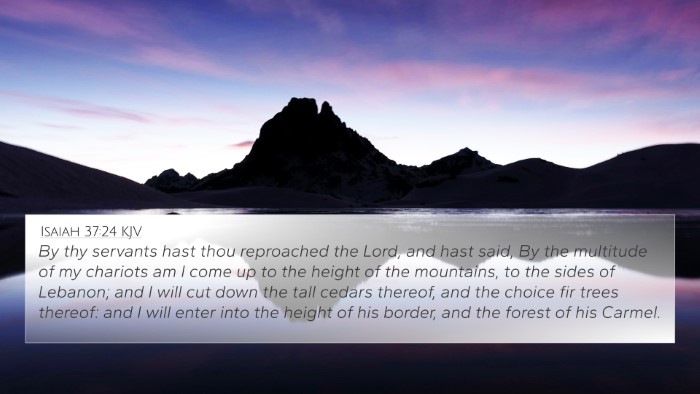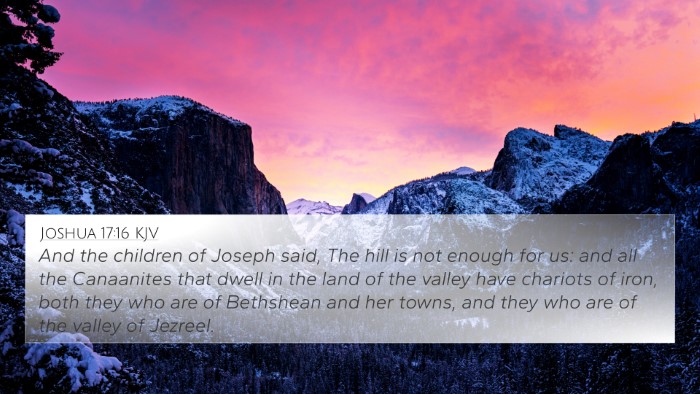Understanding Exodus 14:7
Exodus 14:7 states: "And he took six hundred chosen chariots, and all the chariots of Egypt, and captains over every one of them." This verse illustrates the aggressive pursuit of the Israelites by Pharaoh and serves as a critical moment in the Exodus narrative. This summary synthesizes insights from public domain commentaries, providing a comprehensive look at this verse's meaning and its theological implications.
Analysis and Interpretation
This verse captures the intensity of Pharaoh's determination to recapture the Israelites after their departure from Egypt. The choice of "six hundred chosen chariots" signifies both military prowess and urgency. Public domain commentaries highlight the following insights:
- Historical Context: As noted by Matthew Henry, the Israelite departure was a significant act of liberation, illustrating God's power over Egypt's might. Pharaoh's decision to pursue not only reflects his obstinacy but also the larger narrative of divine judgment against Egypt.
- Symbolism of Chariots: Adam Clarke explains that the chariot symbolizes strength and speed in warfare. Pharaoh's reliance on his chariots can be seen as a metaphor for human strength opposing divine command.
- Leadership in Battle: The mention of captains indicates a well-organized military effort, which Albert Barnes points out signifies Pharaoh's preparation and determination to reclaim his lost subjects.
Thematic Connections
This verse connects to several broader themes in the Bible:
- Divine Deliverance: The pursuit of the Israelites amplifies the theme of God's deliverance and the consequences of opposing Him.
- Oppression: It reminds readers of the oppression the Israelites faced in Egypt and the importance of liberation.
- Faith and Trust: As the Israelites confront their pursuers, their need for faith in God's protection becomes paramount, a recurrent theme throughout the Scriptures.
Bible Verse Cross-References
This verse can be cross-referenced with several key scriptures for deeper understanding:
- Exodus 3:19-20: God's declaration of punishment against the Egyptians.
- Exodus 14:5: Pharaoh's regret over releasing the Israelites.
- Exodus 14:9: The description of the Egyptians pursuing the Israelites.
- Psalm 136:15: Reference to the drowning of Pharaoh's chariots in the sea.
- Isaiah 31:1: A warning against reliance on chariots instead of God.
- Romans 9:17: Paul's reference to God's purpose in raising Pharaoh to show His power.
- 1 Corinthians 10:1-2: Paul’s use of the Exodus as an example of baptism into Moses.
Comparative Bible Verse Analysis
When analyzing Exodus 14:7 alongside other passages, we note:
- Connections to New Testament: The message of deliverance parallels the salvation offered in Christ, where faith is crucial in spiritual battles.
- The link to Joshua 10:11: God's intervention in battles highlights His sovereignty over military might.
- Matthew 2:13-15: The flight of Joseph and Mary to Egypt underscores themes of escape from persecution that echo the Exodus theme.
Tools for Bible Cross-Referencing
For those interested in exploring connections like those in Exodus 14:7, consider the following tools:
- Bible Concordance: A useful resource for finding related verses and their meanings.
- Bible Cross-reference Guide: Helps identify thematic links across different books of the Bible.
- Cross-reference Bible Study: A method for discovering deeper meanings by linking verses thematically.
- Inter-Biblical Dialogue: Exploring how various books, both Old and New Testament, speak to each other.
Conclusion
Exodus 14:7 serves as a pivotal point in the biblical narrative, shedding light on the conflict between divine will and human actions. The chariots, captains, and the pursuit of the Israelites reveal deeper spiritual truths about oppression, deliverance, faith, and God's sovereignty.
For further exploration, readers are encouraged to consider how this verse relates to their understanding of God's deliverance and their personal faith journeys.
